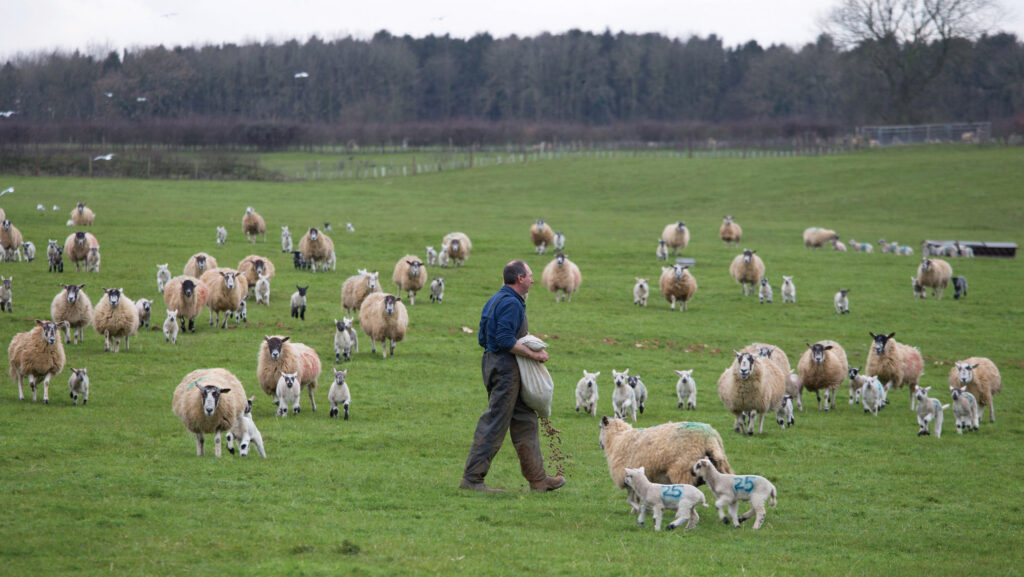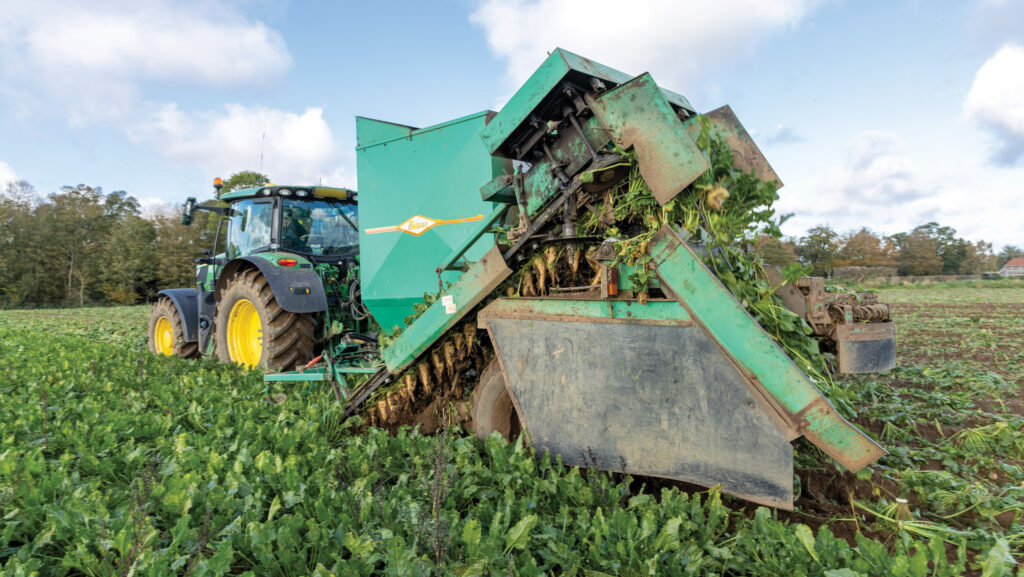Executors and trustees – their roles and responsibilities
 © Tim Scrivener
© Tim Scrivener With wills being written and reviewed as part of inheritance tax (IHT) and succession planning, it is vital to understand the role of the executor – the person responsible for managing the estate and ensuring the deceased’s wishes are carried out.
See also: How careful planning can reduce the risk of a challenge to your will
For farming estates, this role can be particularly complex and time-consuming, as executors have the added pressures of keeping the business running, explains Nia Griffiths, a partner in the private client team at HCR Law.
Choosing your executors
It is important that the executors have sufficient knowledge of the business to ensure business continuity. If more than one executor is being chosen, pick people who can work together effectively, says Nia.
“Some of the issues we see when dealing with farming estates are where farming and non-farming children are appointed together. I’m not saying you shouldn’t do this, but you must make sure they all get on and the individuals that don’t farm have the knowledge to be able to pick up any issues quickly.”
In farming families, the executors are typically the deceased’s children and beneficiaries of the estate. A professional – usually a solicitor or accountant – can be appointed to help administer the estate.
Having too many executors can make administering the estate difficult as each needs to sign the documentation and everyone should have input into decisions, warns Nia.
“Anything over four starts to get tricky. Two is often chosen. When you name your executors you can also provide names of replacement executors who can step in should someone pass away or be unable or unwilling to act.”
Informing the people you have picked to be an executor is important to avoid any surprises.
“That means they know what lies ahead and they can ask questions like: Where will I find a copy of the will? Have you got a letter of wishes? Where is the partnership agreement?”

© GNP
Duties and responsibilities
The role of the executor is to gather the details of all the deceased person’s assets and liabilities at the time of death and settle any taxes due – including IHT. They can then apply for probate, settle any estate debts and distribute the remaining assets to the beneficiaries according to the will.
The process involves collecting details of the will, bank accounts, pensions, savings, share certificates, partnership agreements and any property deeds and documentation.
Arranging for a professional market valuation of the land, property and other business assets is an important part of executorship, as this is needed when reporting the details of the estate and its value to HMRC using an IHT400 form. Often this form will be completed by a professional.
Valuations should be carried out relatively quickly as the IHT400 must be completed within 12 months of the death and is a prerequisite for applying for the grant of probate.
Executors – questions and issues
- Do they get on? Can they work together and make decisions effectively?
- Do they have enough knowledge of the business, or are they able to pick it up sufficiently quickly to be effective?
- Inform those you have chosen as executors, to avoid any surprises
- Consider providing names of replacement executors who can step in should someone pass away or be unable or unwilling to act
Where IHT is due, it should be paid within six months of the death, after which interest will be charged on the outstanding amount.
From April 2026, and only on assets that qualify for agricultural property relief (APR) or business property relief (BPR), no interest will be payable on the outstanding IHT for those assets if the estate has opted to pay the tax by instalments over 10 years. However, the executors must make sure that the first IHT instalment is paid within the first six months following death.
“Executors may decide it is better commercially to spread the payments in order not to have to sell some business assets which means the business may no longer be viable,” says Nia.
Other matters and tasks
There are other practical tasks to address, such as ensuring that any stock is being looked after.
“Insurance is another issue that is important from the outset,” says Nia “If the death means a house is now unoccupied you need to let the insurer know and follow any conditions set down. For the farm, you want to make sure that any policies are no longer in the name of the deceased.”
Executors are also personally liable if they make any mistakes in administering the will, including failure to settle debts.
To protect from the liability of any unknown creditors, it is advisable to place statutory notices in both the London Gazette and a local newspaper asking for any creditors of the deceased to come forward within two months.
Trustees: Role and duties
While executors deal with what happens immediately after death, trustees are responsible for the long-term management and protection of family assets.
The proposed IHT reforms have reignited interest in trusts, both for new arrangements and existing structures. While many are considering trust structures to mitigate IHT liabilities ahead of April 2026, it is vital to go in with your eyes open.
Understanding the trustee’s role – a position which should not be bestowed or accepted lightly – is essential before creating a trust, says Hayden Bailey, head of private client and tax at law firm Boodle Hatfield.
“A trust is about far more than tax,” he says. “Trusts predominantly exist to steward assets over multiple generations, so while tax may be a consideration, it should never be the main driver.”
What is a trustee?
Trustees are individuals or companies who manage assets – land, buildings, money or investments – on behalf of beneficiaries.
“It is a unique position as the trustees become the legal owner of the property which they hold,” says Hayden.
“For modern landed estates, it is an asset-protection measure, separating asset ownership from individual family members and therefore protecting against any improvident behaviour, divorce or bankruptcy.
“Trustees also act as wise counsel to help guide decision-making.”
What are the duties of a trustee?
Trustees have fiduciary obligations, meaning they have personal responsibility for administering the trust and managing property prudently for the benefit of beneficiaries, often across multiple generations.
They need to attend regular meetings – how often depends on the size of the farm or estate – but it can range from annual to weekly.
They must be actively involved in decision-making about borrowing, diversifying and development and will review and sign off the accounts.
They must also work with advisers on HMRC tax assessments.
Trustees must act in the best interests of beneficiaries as a whole and may consider their wishes but are not generally obliged to follow them to the letter.
Professional trustees, such as solicitors, can usually charge for their time, but most other trustees do not, because the regulatory burden around payment is high.
Private trust companies are corporate entities created to act as trustees but the cost of this means it is only viable for larger estates.
How to choose a trustee
Choosing trustees involves careful thought, warns Hayden. They can be beneficiaries themselves, but are often family friends, other landowners or independent professionals.
“You should look for someone with common sense, integrity, financial acumen and an understanding of the business, the family and its values,” he says.
Passive or incapacitated trustees are problematic, as trustees must usually act jointly and make unanimous decisions.
How many are needed?
Three to four is common. Fewer can be risky if someone becomes incapacitated. When a trustee dies, there is no automatic replacement.
The remaining trustees can appoint one, or the power to do this may be vested in someone such as the settlor – the person creating the trust.
Trustees wishing to retire must usually find a replacement, which can be difficult given the level of responsibility.
If all trustees die without appointing successors, then the executors of the will of the last trustee to die would appoint new trustees.
How do trustees know what they should do?
Trustees must act with independent judgement. They must follow the directions set out in the trust instrument unless sanctioned otherwise by all beneficiaries or the court.
The trust instrument is the legal document that formally establishes a trust and outlines the terms under which assets will be held and managed.
The settlor also often leaves a letter of wishes which trustees can consider when making decisions. However, the letter is not binding: the trust instrument takes priority.
What liabilities does being a trustee bring?
Trustees are personally liable for their decisions and can be sued. The Trustee Act 2000 places relatively high burdens on trustees to take advice and act prudently.
This prompts many trustees to seek professional advice before making decisions to demonstrate they have considered matters with due diligence.
Older trusts may include weaker exoneration clauses. Trustees should review the trust deed and familiarise themselves with the terms, and in some cases seek indemnities from the family if they do not feel sufficiently protected, suggests Hayden.
What are the pitfalls?
One pitfall of trusts is that the structure can encourage inertia.
“You have to take a much longer-term view on decision-making than if you were an individual entrepreneur,” says Hayden.
“An individual might say, ‘I’m just going to do this and take the risk’. Trustees can’t think like that.”
It is also more likely that a trustee would be sued for doing something than doing nothing.
“We are seeing landowners frustrated by how risk-averse trustees have become out of fear of being sued or caught in the widening regulatory net for landed estates.
“This is forcing some to miss out on commercial and investment opportunities.
“However, trustees have a duty to maximise financial return for beneficiaries, and their role is active.
“A trust can therefore be a good solution for long-term success and protection of the business – with the right trustees in charge.”
